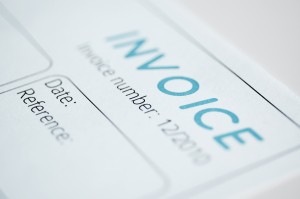Apple Inc. (NASDAQ:AAPL) has joined the new SupplierPay program, a Federal initiative designed to help small American businesses grow when dealing with larger firms. This voluntary initiative binds those companies that agree to it to pay their suppliers within 15 day of being invoiced, ensuring that small enterprises are paid quickly when dealing with larger entities.
The program is intended to lessen the debt burden carried by smaller companies operating in the United States. Frequently, these companies lack the leverage to negotiate favorable payment terms when dealing with larger firms, and are therefore left waiting for long periods before receiving payment. This forces the small companies to borrow money in order to cover expenses while waiting for payment for goods or services already provided. The additional interest costs cut into small business margins and increase their expenses, contributing to a high failure rate.

Apple Inc. (AAPL) is only one of at least 26 prominent companies that have already pledged their names to the program. Communications company AT&T, shipping firm FedEx Inc., medical supply maker Johnson & Johnson, soft drink giant Coca Cola, aerospace and defense company Lockheed Martin, construction firm Textura Corporation, auto makers Toyota and Rolls Royce, IBM, Intuit, and Cardinal Health Inc. are among the most notable of these.
According to a press release available in the White House website’s Briefing Room, the QuickPay initiative has increased the working capital of small businesses in the United States by an amount exceeding $1 billion since its inception three years ago. QuickPay was also renewed today, and it is hoped that SupplierPay will generate similar or even larger benefits by speeding payments made by private sector companies to their suppliers.
Of course, such arrangements can also make fiscal sense for even a large company like Apple Inc. (AAPL), in addition to their “good will value” in making the firm appear responsible and even patriotic. These small businesses are likely to purchase electronics to assist with their operations, and these purchases will ultimately roll back into the revenues generated by the Apple ecosystem.




